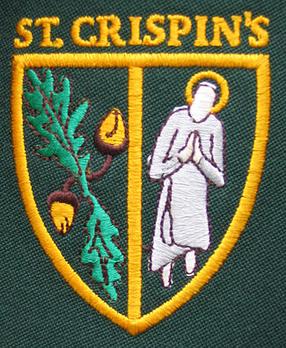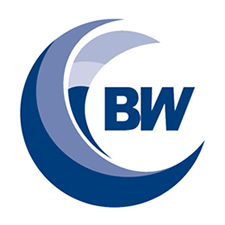Related Research Articles

The General Certificate of Secondary Education (GCSE) is an academic qualification in a range of subjects taken in England, Wales and Northern Ireland, having been introduced in September 1986 and its first exams taken in 1988. State schools in Scotland use the Scottish Qualifications Certificate instead. However, private schools in Scotland often choose to follow the English GCSE system.

A grammar school is one of several different types of school in the history of education in the United Kingdom and other English-speaking countries, originally a school teaching Latin, but more recently an academically oriented secondary school.
The Tripartite System was the arrangement of state-funded secondary education between 1945 and the 1970s in England and Wales, and from 1947 to 2009 in Northern Ireland. It was an administrative implementation of the Education Act 1944 and the Education Act 1947.

A comprehensive school is a secondary school for pupils aged 11–16 or 11–18, that does not select its intake on the basis of academic achievement or aptitude, in contrast to a selective school system where admission is restricted on the basis of selection criteria, usually academic performance. The term is commonly used in relation to England and Wales, where comprehensive schools were introduced as state schools on an experimental basis in the 1940s and became more widespread from 1965.

Newstead Wood School is a selective girls' grammar school in Avebury Road, Orpington, south east London, England. The school has been admitting boys into the sixth form since 2012.

The specialist schools programme (SSP), first launched as the Technology Colleges programme and also known as the specialist schools initiative, specialist schools policy and specialist schools scheme, was a government programme in the United Kingdom which encouraged state schools in England and Northern Ireland to raise private sponsorship in order to become specialist schools – schools that specialise in certain areas of the curriculum – to boost achievement, cooperation and diversity in the school system. First introduced in 1993 to England as a policy of John Major's Conservative government, it was relaunched in 1997 as a flagship policy of the New Labour governments, expanding significantly under Prime Minister Tony Blair and his successor Gordon Brown. The programme was introduced to Northern Ireland in 2006, lasting until April 2011 in England and August 2011 in Northern Ireland. By this time, it had established a near-universal specialist system of secondary education in England, with almost every state-funded secondary school in England having specialised. This system replaced the comprehensive system which had been in place since the 1970s.

An academy school in England is a state-funded school which is directly funded by the Department for Education and independent of local authority control. The terms of the arrangements are set out in individual Academy Funding Agreements. 80% of secondary schools, 40% of primary schools and 44% of special schools are academies.

Nailsea School, located in Nailsea, North Somerset, England, is a mixed secondary school and sixth form. It has Technology and Media Arts College specialist school status, and became an academy on 1 September 2012. Academy status means Nailsea School now receives funding directly from the government, where before it was funded by the local authority, however the daily running of the school stays much the same.
The grammar schools debate is a debate about the advantages and disadvantages of the existence of grammar schools in the United Kingdom. Grammar schools are state schools which select their pupils on the basis of academic ability, with pupils sitting an exam in the last year of primary school to determine whether or not they gain a place. The debate on selective education has been widened by measures which allow a proportion of students to be chosen based on their "aptitude" for a particular subject.
Codsall Community High School is a coeducational upper school and sixth form located in Codsall, Staffordshire, England.
The Bicester School is a mixed, multi-heritage, secondary school, with 963 students. It is situated in Bicester, Oxfordshire, England, and occupies a 32-acre (130,000 m2) site leading off Queens Avenue.

St Crispin's School, founded in 1953, is a coeducational comprehensive secondary school and sixth form located in Wokingham, Berkshire, England. There were 1,164 students at the school in 2017, of whom 234 were in the Sixth form. The school is on the London Road, just outside Wokingham town centre.
Wombourne High School is a coeducational secondary school and sixth form located in Wombourne, Staffordshire, England. It is situated on Ounsdale Road in the west of the village, and stands on an adjacent site to the local leisure centre. In addition to its main function as a secondary school, Wombourne High School has a standalone building dedicated to its sixth form, which was opened by the pop star Beverley Knight.

The English Martyrs Catholic School and Sixth Form College is a secondary school and sixth form college located in Hartlepool with academy status. English Martyrs is the only Catholic secondary school in Hartlepool. The school and college are both located on the same site on Catcote Road, however, a newly built specialist sixth form block provides the majority of A-Level classes, as well as some 11–16 school lessons.

Brooke Weston Academy is an Academy in Corby, Northamptonshire, United Kingdom, teaching pupils from ages 11 to 18. It has consistently placed very highly in GCSE league tables and has an above average value added score at Key Stage 4. The value added score for Key Stage 5 is below average nationally, but slightly higher than the Northamptonshire average. Attainment on entry is well above average and the proportions of pupils with learning difficulties and disabilities or eligible for free school meals are much lower than average.

Wright Robinson College is a coeducational secondary school in Abbey Hey, Gorton, Manchester, England.
The English Baccalaureate (EBacc) is a school performance indicator in England linked to the General Certificate of Secondary Education (GCSE) results. It measures students' attainment by calculating an average score from specified subject grades. The EBacc includes subjects which are studied in many subsequent university programmes.

Specialist schools in the United Kingdom are schools with an emphasis or focus in a specific specialised subject area, which is called a specialism, or alternatively in the case of some special schools in England, in a specific area of special educational need. They intend to act as centres of excellence in their specialism and, in some circumstances, may select pupils for their aptitude in it. Though they focus on their specialism, specialist schools still teach the full curriculum. Therefore, as opposed to being a significant move away from it, the specialism is viewed as enriching the original curricular offer of the school.

English state-funded schools, commonly known as state schools, provide education to pupils between the ages of 3 and 18 without charge. Approximately 93% of English schoolchildren attend such 24,000 schools. Since 2008 about 75% have attained "academy status", which essentially gives them a higher budget per pupil from the Department for Education.

A comprehensive school, or simply a comprehensive, typically describes a secondary school for pupils aged approximately 11–16 or 11–18, that does not select its intake on the basis of academic achievement or aptitude, in contrast to a selective school system where admission is restricted on the basis of selection criteria, usually academic performance. In England and Wales comprehensive schools were introduced as state schools on an experimental basis in the 1940s and became more widespread from 1965. They may be part of a local education authority or be a self governing academy or part of a multi-academy trust.
References
- ↑ Companies House
- ↑ "Research people – Education". University of York. Archived from the original on 30 July 2018. Retrieved 27 December 2021.
- ↑ "Freebmd Search" . Retrieved 10 July 2012.